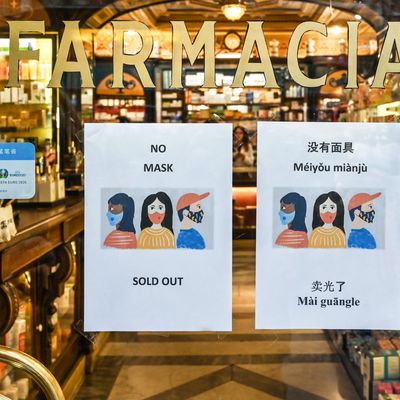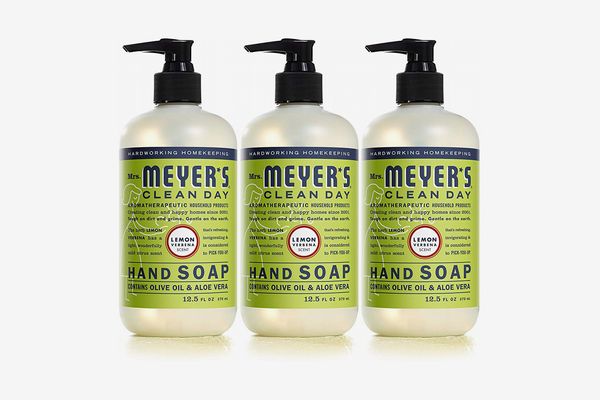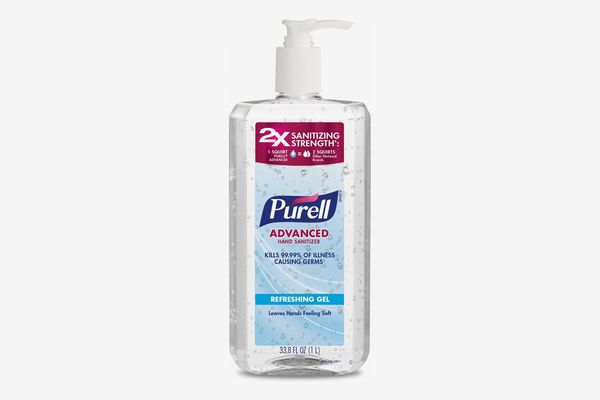
Update: As of April 3, the CDC now recommends people wear cloth face masks in public settings. To read more about those, along with where to buy them and how to make them, click here.
If hourly news updates on the spread of the coronavirus have you constantly reaching for the Purell — and your Xanax (or anxiety remedy of choice) — you’ve probably wondered if it’s time to buy a face mask. Currently, the CDC only recommends that doctors and nurses treating patients who are, or may be, infected with the virus wear N95 respirator masks — the face masks certified to filter out at least 95 percent of airborne particles. Residents of impacted cities in China have been encouraged to wear masks in public, too. While no such recommendation has been issued for those in the U.S., that hasn’t stopped many panicked people from buying up all the masks they can find. That’s a problem for more than just the nervous among us: As the New York Times reported yesterday, mask hoarding might actually cause a shortage for health-care workers who actually need them.
We’ve noticed the run on masks locally as well. Earlier this week, a sign went up on the door of the Duane Reade on the corner of Broadway and Grand Street that said, in English and Chinese: “Sold Out of Masks.” Strategist managing editor Maxine Builder even spotted two opportunists hawking N95 masks for $25 each (you can normally buy a ten-pack for around $20) in Fulton Center. You won’t fare much better online: A little Amazon perusing uncovered only a handful of equally marked-up masks, mostly from shady-looking third-party sellers. So, we asked three infectious disease doctors, what’s a hypochondriac to do?
“I would not recommend somebody going out and getting a N95 mask because the value of using those masks is demonstrated when people are properly fit with the right size mask and using it in the right way,” says David Hirschwerk, an infectious disease specialist at North Shore University Hospital. Waleed Javaid, director of infection prevention and control at Mount Sinai Downtown agrees. Because the N95 masks used in hospital settings require an exact fit to eliminate gaps between the mask and the skin, along with training for proper use, for most people they aren’t going to be effective, he says.
If you still feel the need to cover up your nose and mouth, you can get some protection from a basic surgical mask. But only some. Unlike an N-95 mask, a surgical mask has a looser seal against the face so there’s room for germs to get in. Aaron E. Glatt, chair of medicine at Mount Sinai South Nassau and a spokesperson for the Infectious Diseases Society of America, says a surgical mask works as a physical barrier, but “it’s not clear how much benefit you’re getting because you also breathe in the air around the sides of the mask, where there is potentially infectious material as well.” And Javaid cautions that you’ll only reap the benefits if you use it properly: washing your hands after taking it off, not touching the outside of the mask, only using each mask once, and replacing it if it gets wet.
If you’re still worried about getting sick, you’re better off following common-sense advice on avoiding illness. “Everybody wants masks,” says Glatt, but he instead stresses basic good hygiene: “Stay home [if you’re sick], don’t infect anybody, wash your hands appropriately, and get vaccinated.” In fact, all three doctors we consulted say you’re much more likely to catch the flu than the coronavirus, so definitely get vaccinated if you haven’t already. We have more advice from doctors on avoiding colds here, but below are the two most important items you can add to your cart, whether you’re trying to avoid the coronavirus, the flu, or an everyday cold.
According to doctors, good old-fashioned hand soap is your best defense against germs. “Handwashing is critical,” says Javaid. “It’s far more important right now than wearing a mask.” Always wash your hands before eating or touching your eyes (like for putting in or taking out contacts) and after touching a person or surface that might be contaminated, and you’ll be well on your way to staying healthy. Doctors say regular soap is fine — there’s no need to spring for antibacterial — and to just make sure you’re spending a good 20–30 seconds at the sink. Some nice-smelling Mrs. Meyer’s will do the trick.
When you don’t have access to water, hand sanitizer works as well. It’s especially useful for cleaning hands after holding on to a germ-covered subway pole.
The Strategist is designed to surface the most useful, expert recommendations for things to buy across the vast e-commerce landscape. Some of our latest conquests include the best acne treatments, rolling luggage, pillows for side sleepers, natural anxiety remedies, and bath towels. We update links when possible, but note that deals can expire and all prices are subject to change.







